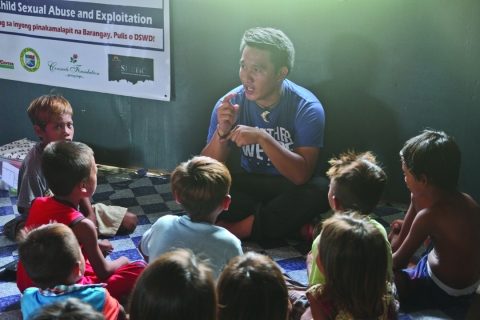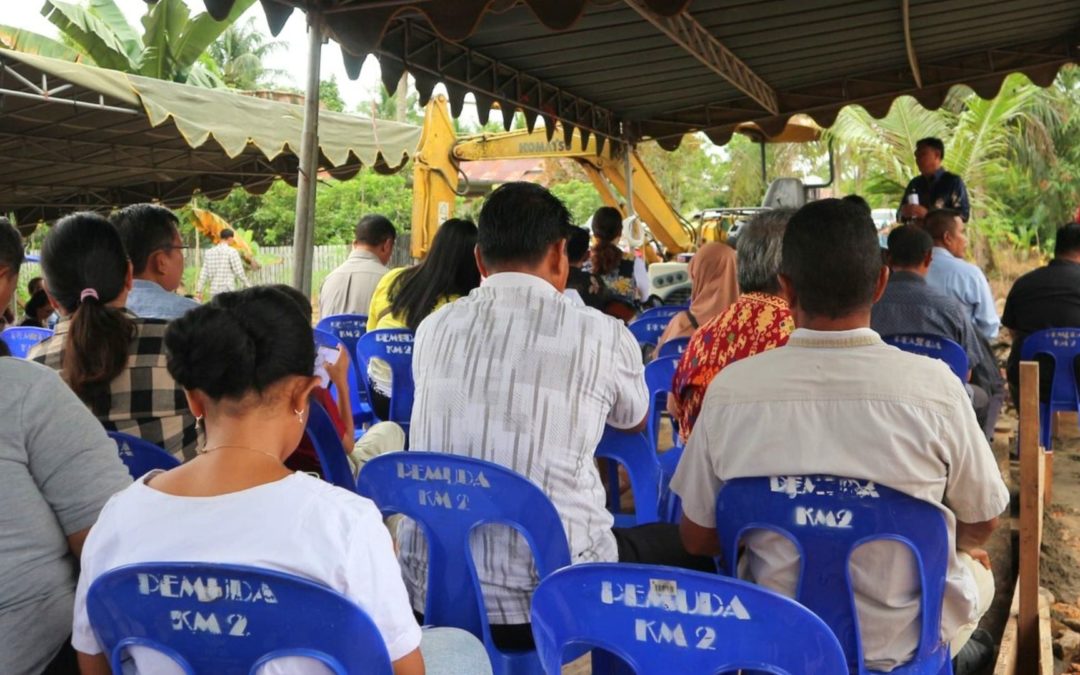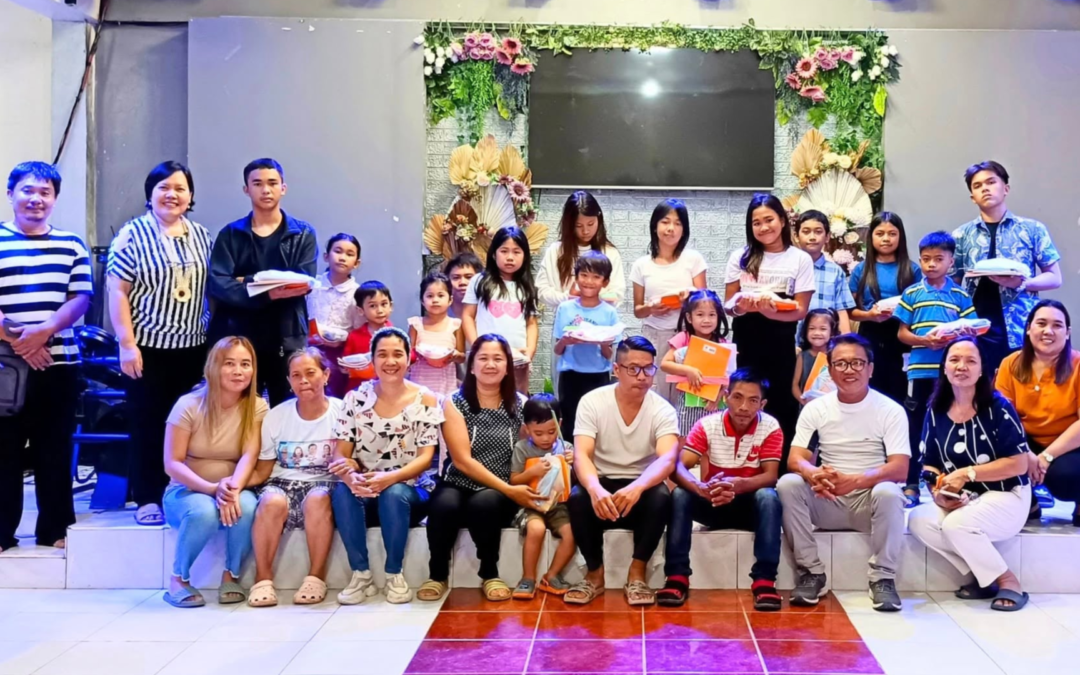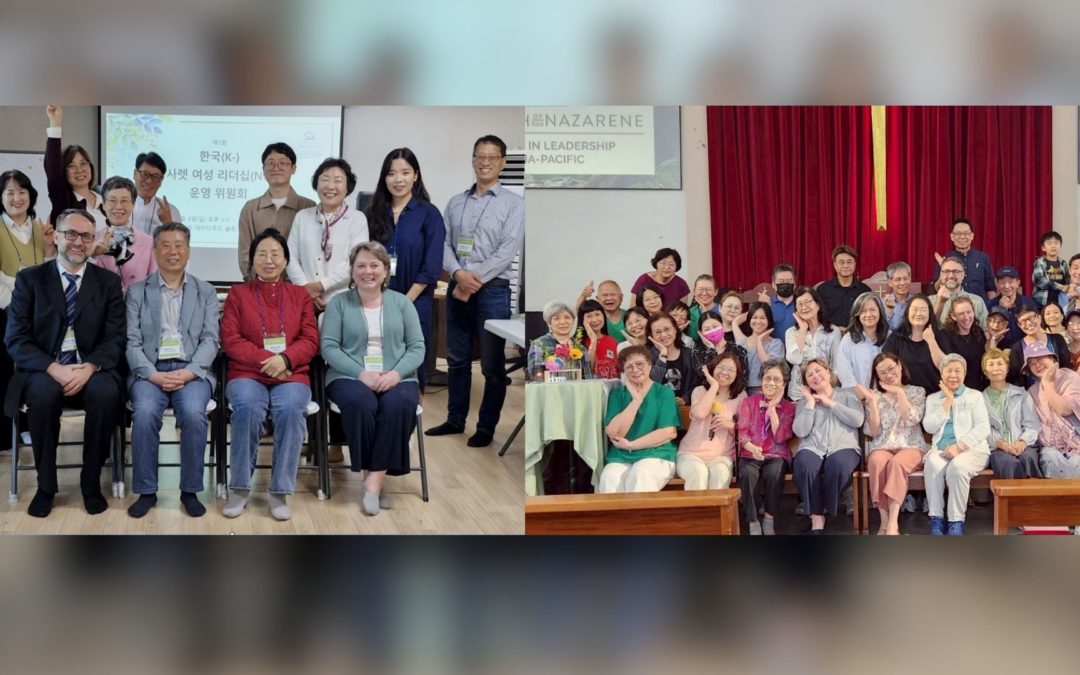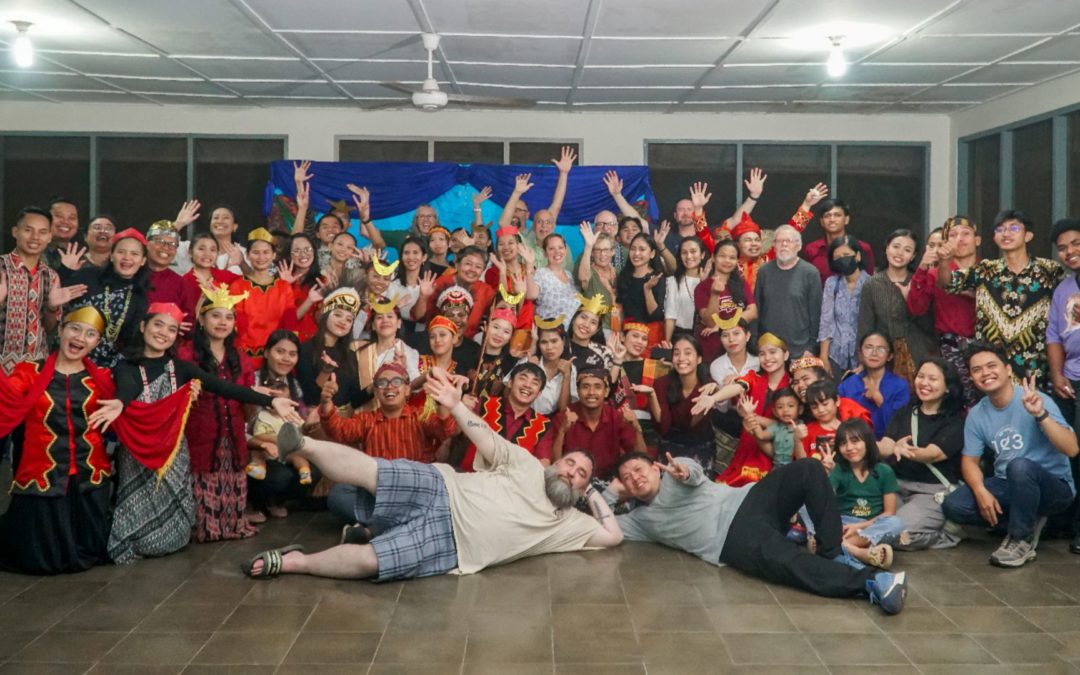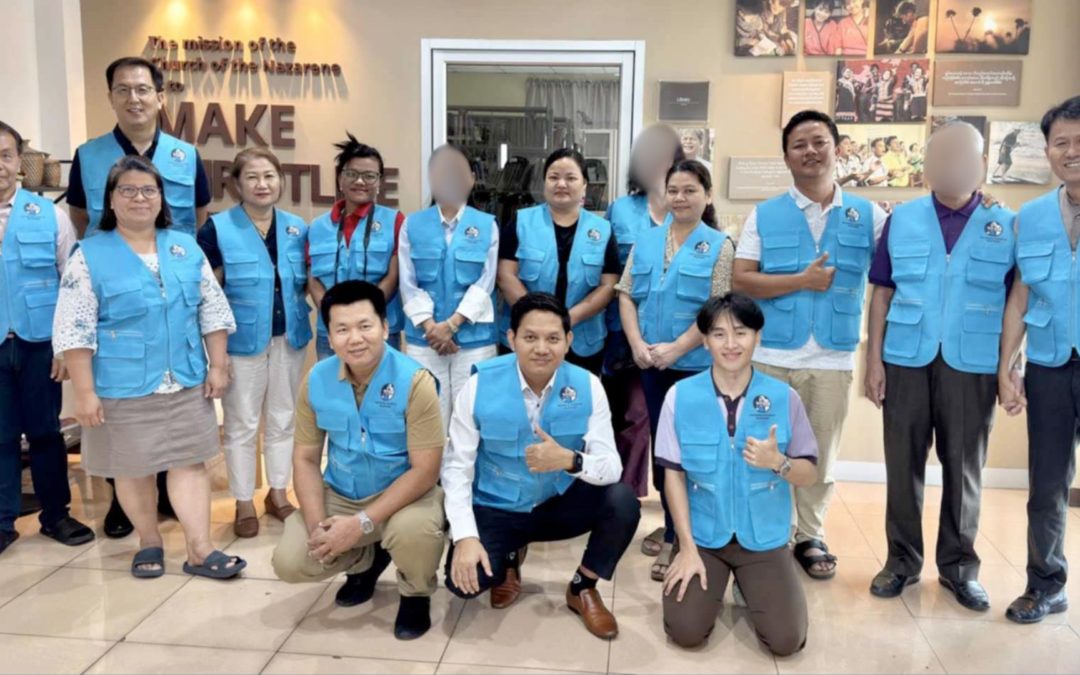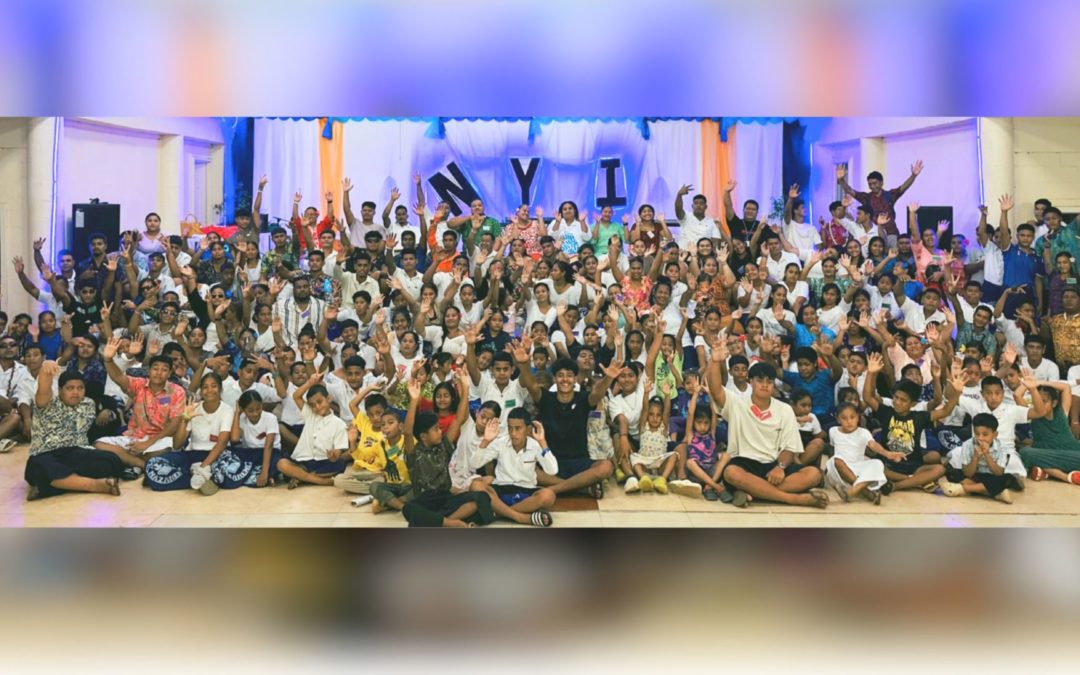Southern Philippines (Engage Magazine): In May 2014, I moved to Zamboanga City, a 12-hour bus ride from my hometown in the Philippines. I had just graduated from university. I wasn’t sure what I was getting into, but my church had asked me to go and I said yes.
Eight months earlier, Zamboanga had experienced a 20-day battle between the Philippine military and a separatist organization that had left more than 60,000 people displaced. I was sent to work in the Mampang transitory site where 10,000 people had been relocated.
Most of the people I work with are from the Badjao tribe, an ethnic group who live in the seaside areas of the city. They’re sometimes called “sea gypsies” or “sea dwellers.” They are peace-loving people yet are considered the lowest and most outcast in the Philippine context.
My job is to organize and lead a temporary learning space in one section of the site where a few volunteers and I teach math, basic writing, proper hygiene, and personal values. In general, about 70 to 80 children—mostly Badjao—attend if they’re in the mood. Sometimes they aren’t in the mood, and only 20 to 30 children attend. Education is generally not considered a priority, and some parents do not even allow their children to attend, preferring they go to work fishing or go begging in the streets instead.
A mix of heartache and hope…
After almost two years working here, I can describe life in the transitory site in one word: hard. Finding a stable source of income is very hard, and finding daily food for survival is like climbing a mountain with no trails. The temperature is hot, and there are no trees for shade.
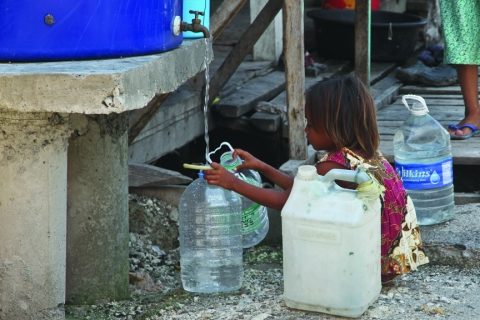
Almost 10 trucks of water are delivered to the site each day, but still it is not enough to meet the needs of almost 10,000 individuals. Water is precious, like money. For this reason, whenever a strong rain comes, people stock barrels of water. The water is not safe, though, and there is a lot of diarrheal disease.
Even though education is difficult in this context, many children have shown a lot of determination. There is a girl named Rita* who has consistently attended our activities. She is quiet and shy, but what strikes me most is her dedication to learning. Although she is 14 years old, she was never taught how to write. But given a little education, she has already learned so much, including how to write her name and other basic literacy skills. There are many kids here like Rita.
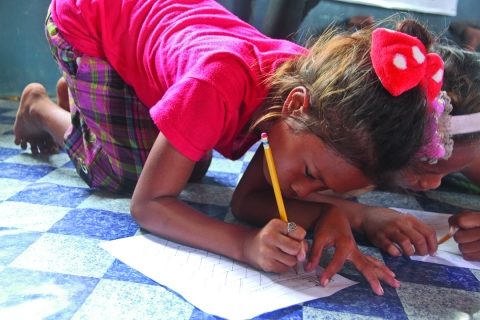 The girls are very vulnerable. Here in Zamboanga, there are men paying girls 20 pesos (42 cents USD) for sex. Children are being exploited. Girls tell us that many men are coming to the transitory site. Because of their extreme poverty, these girls are coerced and forced to engage in this kind of activity.
The girls are very vulnerable. Here in Zamboanga, there are men paying girls 20 pesos (42 cents USD) for sex. Children are being exploited. Girls tell us that many men are coming to the transitory site. Because of their extreme poverty, these girls are coerced and forced to engage in this kind of activity.
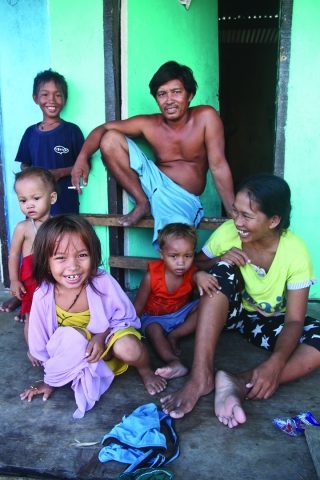 In spite of the heartache, there are hopeful moments, too. The most rewarding aspect is personal interactions. Badjao people are often misunderstood and looked down on, but our team has the privilege to talk to children and their parents and to really know their stories.
In spite of the heartache, there are hopeful moments, too. The most rewarding aspect is personal interactions. Badjao people are often misunderstood and looked down on, but our team has the privilege to talk to children and their parents and to really know their stories.
There are many people who have said to us, “You’ve changed our lives and helped us,” but I tell them, “You’ve changed our lives. Look how resilient and strong you are!”
God is using our presence here. Many organizations offer assistance, but they don’t necessarily offer love. People ask us, “Why are you different? Why do you talk to us? Why do you hug us? Why do you eat with us?” We tell them, “We love you because God loves you—Jesus loves you.”
God has worked in my life here, too. When I was a student, I was happy-go-lucky. I didn’t care about what was happening around me. I didn’t care about social issues or about people in need. When I was a kid, I saw people begging, and I didn’t care about them. Now, I understand their situation and their pain, and I cannot neglect them. I speak to them on Jesus’ behalf and advocate on their behalf. Some friends tease me and ask me why I speak up for those considered outcasts, but the Lord has given me this burden.
God has transformed me and molded me through this ministry in the margins.
*Children’s names are changed for their protection.
— Leody Eschavez lives in Zamboanga City, Philippines, where he serves as the field team leader for the Nazarene church’s disaster response team.
These stories and more are available on Engage Magazine’s Website.

